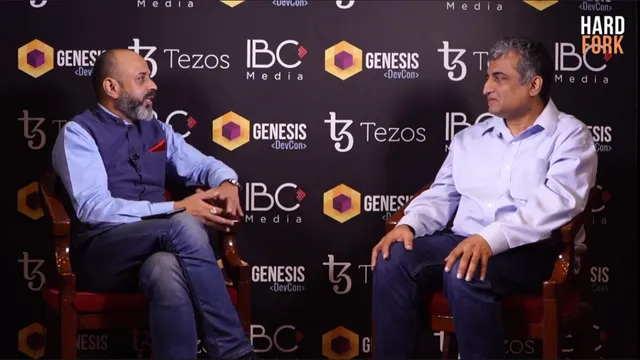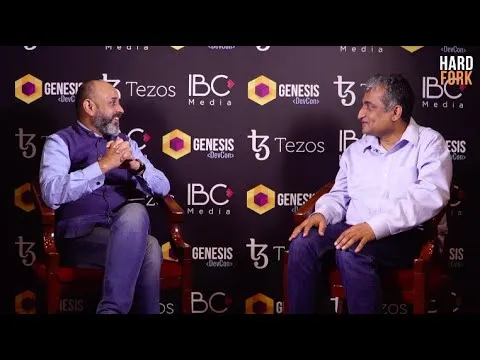
In Conversation about Microservices with Dr. Dilip Krishnaswamy
In this edition of Hard Fork @ Genesis DevCon, we spoke to an exceptional individual who is highly-reputed in the tech circles - Dr. Dilip Krishnaswamy — VP (New Tech R&D), #Reliance Industries.
Dr. Krishnaswamy is an expert in computer science who has a formidable skill set in being an inventor and an intrapreneur. He has contributed to the growth of technology enterprises like Qualcomm, IBM, Intel, and more.
He is keenly interested in developing and applying new and emerging technologies to practical problems. His current areas of interest include — Distributed Information Processing, Machine Learning/Deep Learning/AI, Blockchain Technology, 5G Networks, Edge Services, Network Slicing, MicroServices-based systems, Autonomous Systems, Parallel Processing, and Quantum Algorithms for Optimization.
The entry of Reliance Jio in the blockchain realm is a very empowering one. It will help embolden other enterprises to adopt and implement blockchain. With respect to this, Dr. Krishnaswamy shared what he is working on at Reliance Jio.
Blockchain can be used for social change
Given that blockchain technology comes with several aspects that will enable the creation of accountability and security through decentralized networks, tamper-proof records, and traceability.
Dr. Krishnaswamy stated that peer-to-peer networks can impact the way citizen data is used. A group of individuals can become part of a private network and control the way data is used. He believes that it can re-invent the way we work with several industry verticals to provide efficient solutions.
- In academic systems, blockchain can progress digitize certificate management and ensuring a tamper-proof environment.
- Similarly, this can be applied with employment history as well. The employment history of laborers, when stored on blockchains, can lead to robust databases that can trace the productivity of workers and incentivize them with better job opportunities.
- In Elderly health care, IoT and blockchain can help come up with better service solutions. With this tech duo, there is a scope for expanding smart living capabilities. Elderly citizens who need constant care can be continuously monitored. In cases of emergency, there can be automated triggers that can call an Ambulance. This, of course, can be enabled by the data derived from IoT devices.
- In certain cases, patient health records can also be transferred between hospitals to maintain records and refer to the medical history of the patient. In a sense, with blockchain and IoT combined, we can achieve an end-to-end solution for services involving elderly health care.

